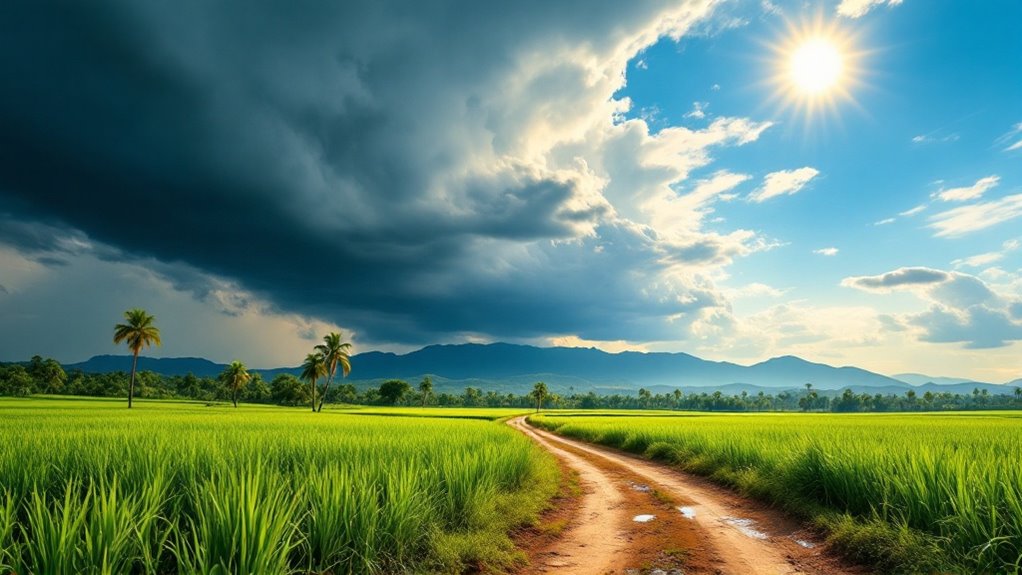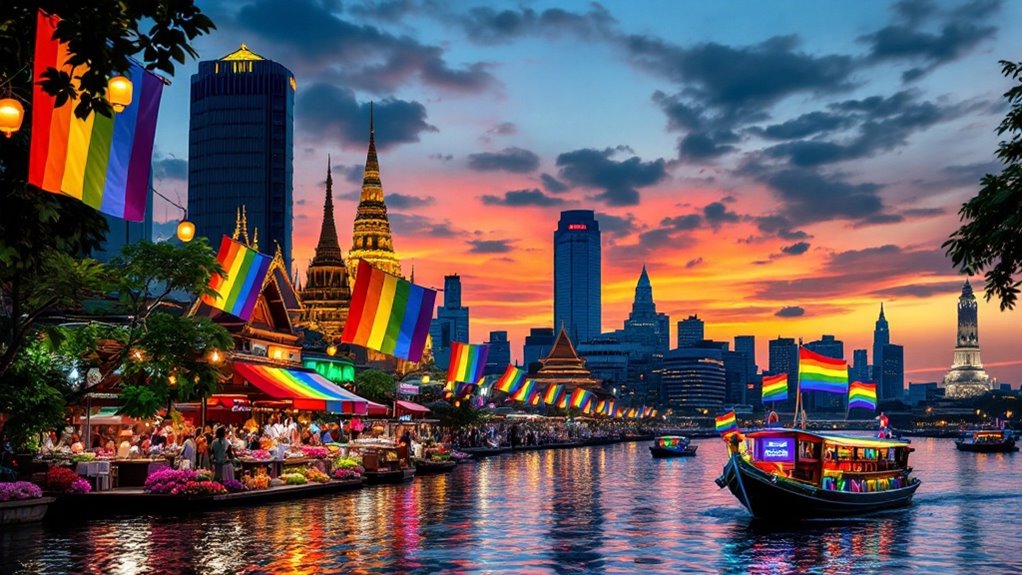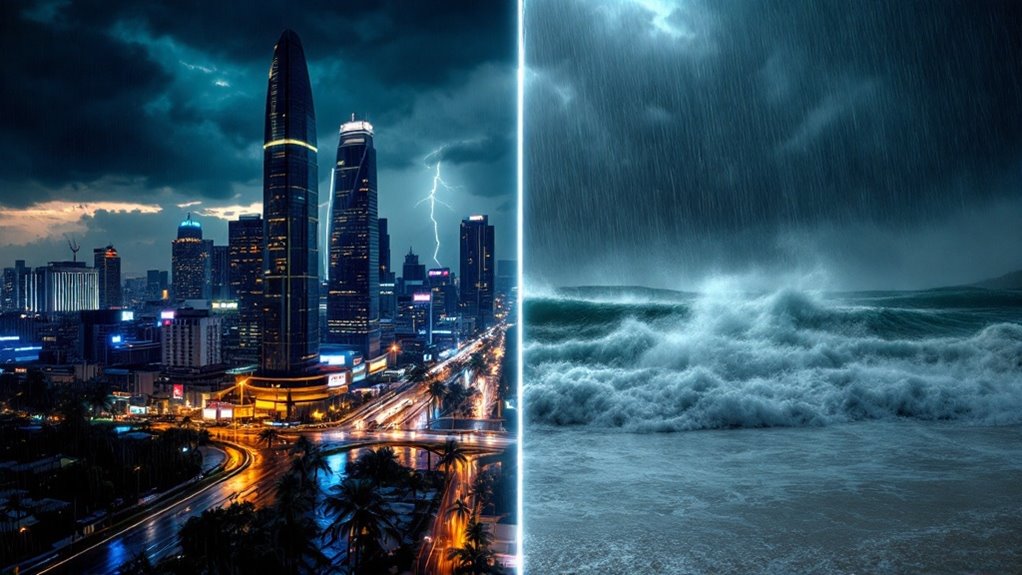Thailand faces an early and intense hot season in 2025, with widespread daytime highs above 35°C, frequent abrupt thunderstorms, and exceptional humidity levels. Northern and northeastern provinces are especially prone to extreme heat, while Bangkok and coastal regions like Phuket experience above-average rainfall and unpredictable weather. April temperatures may exceed 42°C in some areas, prompting health advisories and caution. These shifts reflect broader climate variability across the country, with further specifics about regional impacts and official responses available below.
Although Thailand is widely recognized for its tropical climate, the country’s weather patterns are marked by considerable variability and unpredictability throughout the year. The average annual temperature typically ranges from 25°C to 35°C, but seasonal changes and atmospheric phenomena often produce abrupt shifts. Thailand’s three principal seasons—cool (November to February), hot (March to May), and rainy (June to October)—regularly bring fluctuations that can disrupt established patterns.
In 2025, the hot season began as early as February 28, with forecasts indicating that maximum temperatures will remain high, averaging around 35–36°C, until mid-May. However, the presence of a weak La Niña effect this year is contributing to slightly cooler temperatures compared to previous years, while also increasing the likelihood of above-average rainfall. Regional climate variations across Thailand mean that while one area may be experiencing a heatwave, another may be enjoying cooler breezes or sudden rains.
During the hot season, over 60% of the country is expected to see maximum temperatures exceed 35°C, and in April, the hottest month, some northern and northeastern provinces could experience temperatures surpassing 42°C. Cities such as Chiang Mai may reach highs of 35°C in May even as rainfall begins, while extreme heat—defined as temperatures of 40°C or higher—is a significant concern for 14 provinces. Health officials have issued advisories recommending increased hydration and restricted outdoor activities during peak heat hours. Thailand’s hottest city, Nakhon Sawan, often records temperatures as high as 38°C, highlighting the intensity of heatwaves in certain regions.
Rainfall patterns shift rapidly as May approaches, marking the onset of the rainy season with intense afternoon thunderstorms and sharply rising humidity. Urban centers like Bangkok and Pattaya are projected to experience 15–20 rainy days in May, with rainfall volumes 10–20% above normal. Coastal regions such as Phuket and Krabi may encounter up to 25 rainy days, with localized, short-lived downpours replacing prolonged rainfall events.
Regional differences remain pronounced. Northern and northeastern areas face the highest risks of extreme heat and severe storms, while central and eastern regions see frequent rain and elevated temperatures. Southern coastal cities experience slightly lower daytime highs but higher humidity and more rainfall.
The unpredictability of storms and ongoing influence of climate change necessitate close monitoring of weather advisories to mitigate potential impacts.









